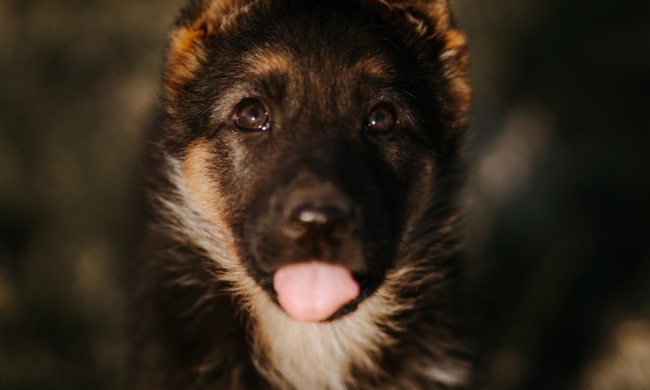No one wants to hear the C-word when it comes to your dog, but unfortunately, it’s a part of life. According to the American Veterinary Medical Association, about half of dogs over the age of 10 develop some form of canine cancer, though many of these pups enjoy many more years of health and happiness thanks to hardworking veterinarians and vigilant owners. So don’t panic—there’s a lot you can learn and do!
Keeping your fur baby healthy begins with understanding what their “normal” looks like. This way, you’ll be able to tell as soon as something seems off. Cancer symptoms in dogs can appear quickly, gradually, and in a number of ways, so knowledge will be your best friend when it comes to your pet’s health. You can start here, where we’ll go over a few cancer symptoms in dogs that might look normal on the surface.
Can dogs get cancer?
Unfortunately, dogs can get cancer just like people. In fact, reports the AVMA, dogs contract cancer at about the same rate as humans, though this rate goes up as a dog ages. Also like humans, not all cancers are cause for panic—many can be effectively treated or even left as-is. Still, you should keep an eye out for any odd symptoms, as these could be warning signs that your dog is battling cancer.
Weight loss
Weight can fluctuate from day to day, whether you’re human or canine, but large, sudden, or unexplained weight loss can be worth investigation. Of course, there are a few situations when you might expect a lighter dog—after a life-changing trip to the groomer or after having puppies, for example—but if this doesn’t apply, you may want to give your vet a call.
The issue may be as minor as a food allergy, so canine weight loss isn’t always a cause for concern. Still, it’s important to address this change because the cause can also be something more major. Weight loss or nutritional malabsorption may not be the root problem, but it can be a symptom of a number of illnesses and cancers. It’s better to be safe than sorry, don’t you think?

Lethargy
Behaviors and moods can change from moment to moment—that’s normal. So is a behavior change in response to something in the environment. But when you notice sudden, extreme, long-lasting, or unexplained lethargy, you should keep an eye on your pet.
Sometimes, lethargy can be the first sign of a medical condition that needs your attention. It could be minor, like when a dog has an upset stomach, or it could be a hint at something more complex. For example, if your old dog isn’t eating, you’ll need to look at the rest of their behavior before you know whether to be worried. As noted by Central California’s SPCA, other signs of lethargy include:
- Lack of interest in food, water, and normal activity
- Slower to respond to sensory stimulation, including your voice
- Lack of energy or enthusiasm
- Extreme tiredness
- Restlessness
Lumps, bumps, and wounds
As your dog ages, lumps and bumps—including frequently-seen lipomas—will naturally develop under the skin. Don’t worry, though: Southern Arizona Veterinary Specialty & Emergency Center assures pet parents that these are not cause for alarm! They may grow into muscle tissue and need to be removed at some point, but your veterinarian will be able to keep an eye on anything before it reaches that point.
There are a number of other tumors that dogs can develop, especially during their older years. Merck Veterinary Manual notes that while some tumors are the typical lumps and bumps we think of, they “also can occur as hairless, discolored patches, rashes, or non-healing ulcers.” That’s why identifying skin conditions, wounds, and tumors should be left to a veterinary professional.

Abnormal discharge or odors
Our four-legged friends are no stranger to body fluids, since they spend so much time licking themselves, but new or unusual discharge from anywhere in the body is worth a closer examination. Even the nose, which is usually wet, should not release excessive mucous (via Crown Veterinary Specialists & Associates). White, green, or yellow nasal discharge can be a sign of sinus infection or sinus cancer, as these kinds of illnesses are not common in healthy, vaccinated dogs.
Odd oozing from the mouth—whether blood, pus, or even excessive saliva—can also be a sign of oral cancers or infections. Stay vigilant for exceptionally bad breath, too; sudden stink can result from a number of these problems, notes Crown Veterinary.
You’ll also want to schedule a vet visit for any strange vaginal discharge in female dogs. Even though intact pups are much more likely to contract vulvar or vaginal cancer, it can occur in any canine (via The Veterinary Society of Surgical Oncology). Of course, genital discharge is supposed to happen at times in both male and female dogs, so don’t be afraid to ask your vet if you’re unsure.
Deep breath, pet parents—you can do this! Whether you’re doubling up on your knowledge or are concerned about your fur baby, you’re doing a great thing by researching cancer symptoms in dogs. The next step is to contact your veterinarian to confirm what’s going on. Even if it’s nothing, you’ll sleep soundly knowing you did what was best for your pup. That’s what being a dog owner is all about!



